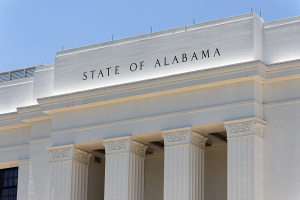Alabama can enforce ban on puberty blockers, cross-sex hormones for kids: appeals court

Alabama may begin enforcing a law outlawing the use of puberty-blocking drugs and cross-sex hormones for minors after a federal appeals court granted a request to stay a preliminary injunction blocking the enforcement of the 2022 ban.
The 11th U.S Circuit Court of Appeals lifted a lower court's injunction Thursday against the state's Vulnerable Child Compassion and Protection Act. Gov. Kay Ivey, a Republican, signed the law in April 2021, which was supposed to go into effect in May 2022.
The court's order allows the ban to go into effect while a legal challenge from the families whose children identify as transgender continues. The state asked the appeals court in November to stay the enforcement of the preliminary injunction, which the court granted.
Alabama Attorney General Steve Marshall called the order "a significant victory for our country, for children, and for common sense."
"The physical and psychological safety of our children can now be better protected from these untested and life-altering chemical and surgical procedures through the implementation of the Alabama Vulnerable Child Compassion and Protection Act," Marshall said in a statement.
Marshall has supported laws in other states that seek to protect children who struggle with their gender identity from body-altering drugs or surgeries. Last month, the attorney general led 23 states in a brief before the 10th U.S. Circuit Court of Appeals in defense of an Oklahoma law banning hormones and sex-change surgeries for minors.
Lawyers representing the parents who are challenging the state ban contend that the court's decision will "harm" trans-identified children by preventing their parents from finding the "medical care their children need to thrive."
The families challenging the law are represented by the Human Rights Campaign, GLBTQ Legal Advocates & Defenders, the National Center for Lesbian Rights, the Southern Poverty Law Center, King & Spalding LLP and Lightfoot, Franklin & White LLC.
"The district court issued its preliminary order blocking the ban after hearing days of testimony from parents, doctors, and medical experts about the devastating impact of this ban and the lack of any medical justification for it," the statement read. "Today's ruling will hurt parents and children in the state. We will continue to challenge this unlawful ban and to support parents and their kids in pushing back against the dangerous reality of being denied access to necessary, best practice medical care."
In August, a three-judge 11th Circuit panel unanimously ruled that Alabama had the right to enforce its Vulnerable Child Compassion and Protection Act. Circuit Judge Barbara Lagoa, a Trump appointee, authored the opinion.
"The plaintiffs have not presented any authority that supports the existence of a constitutional right to 'treat [one's] children with transitioning medications subject to medically accepted standards,'" Lagoa wrote.
"Because the district court erred by reviewing the statute under a heightened standard of scrutiny, its determination that the plaintiffs have established a substantial likelihood of success on the merits cannot stand. We therefore vacate the preliminary injunction."
Circuit Judge Andrew L. Brasher, another Trump appointee, argued in a concurring opinion that an injunction against the law "will not equalize burdens or benefits between girls and boys."
"It will not require the government to treat boys and girls the same. It will merely force Alabama to either ban puberty blockers and [opposite-sex] hormones for all purposes or allow them for all purposes," Brasher stated.
The plaintiffs requested a rehearing before the full 11th Circuit in September 2023, arguing that the panel's reversal of the lower court injunction conflicts with U.S. Supreme Court and 11th Circuit precedent that "laws discriminating based on sex should be subjected to heightened scrutiny under the Equal Protection Clause." The request for the en banc hearing is pending.
A full trial concerning the constitutionality of the ban is scheduled for August 2024.
Samantha Kamman is a reporter for The Christian Post. She can be reached at: samantha.kamman@christianpost.com. Follow her on Twitter: @Samantha_Kamman





























